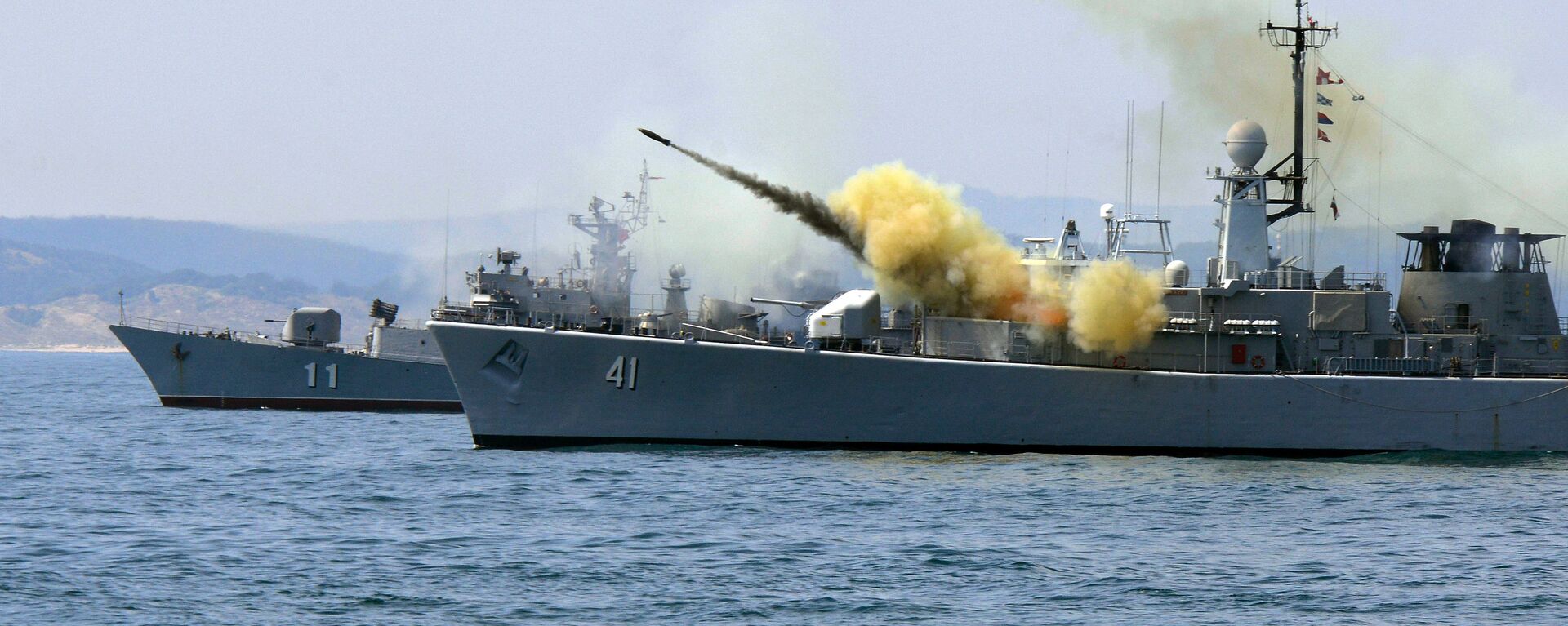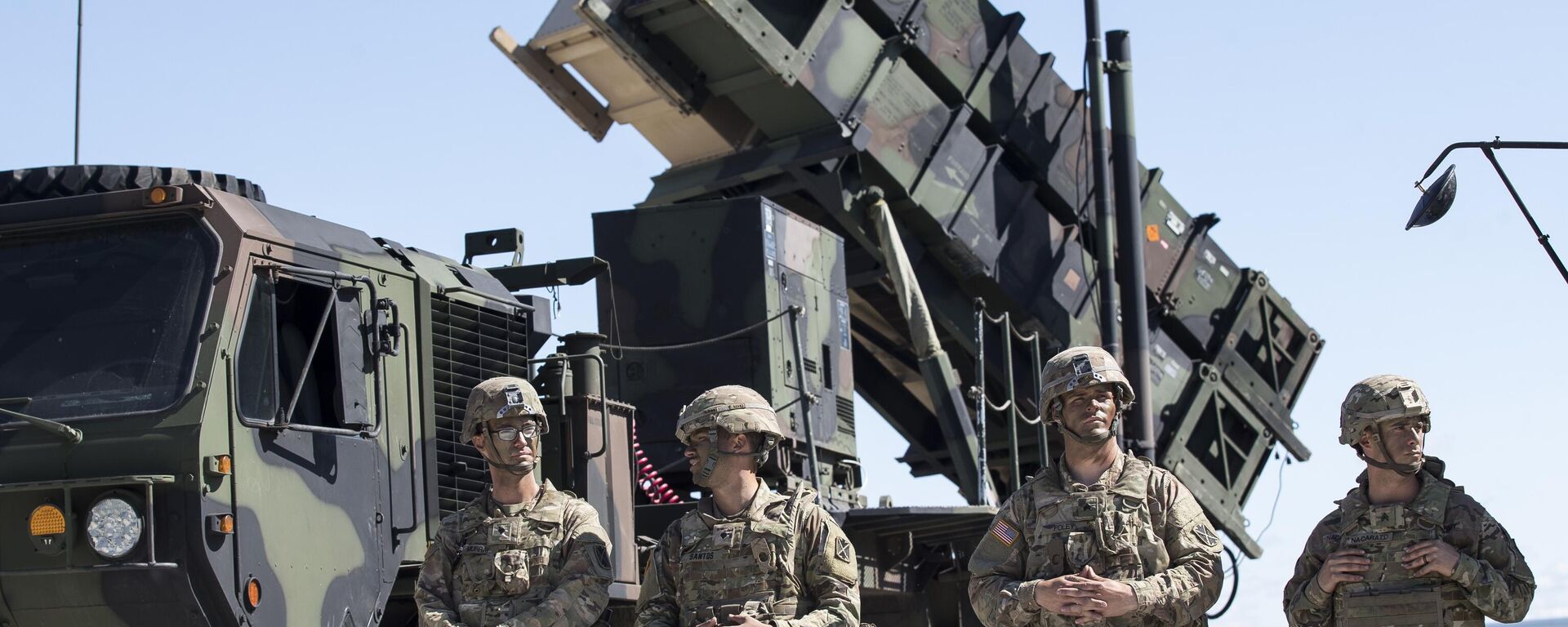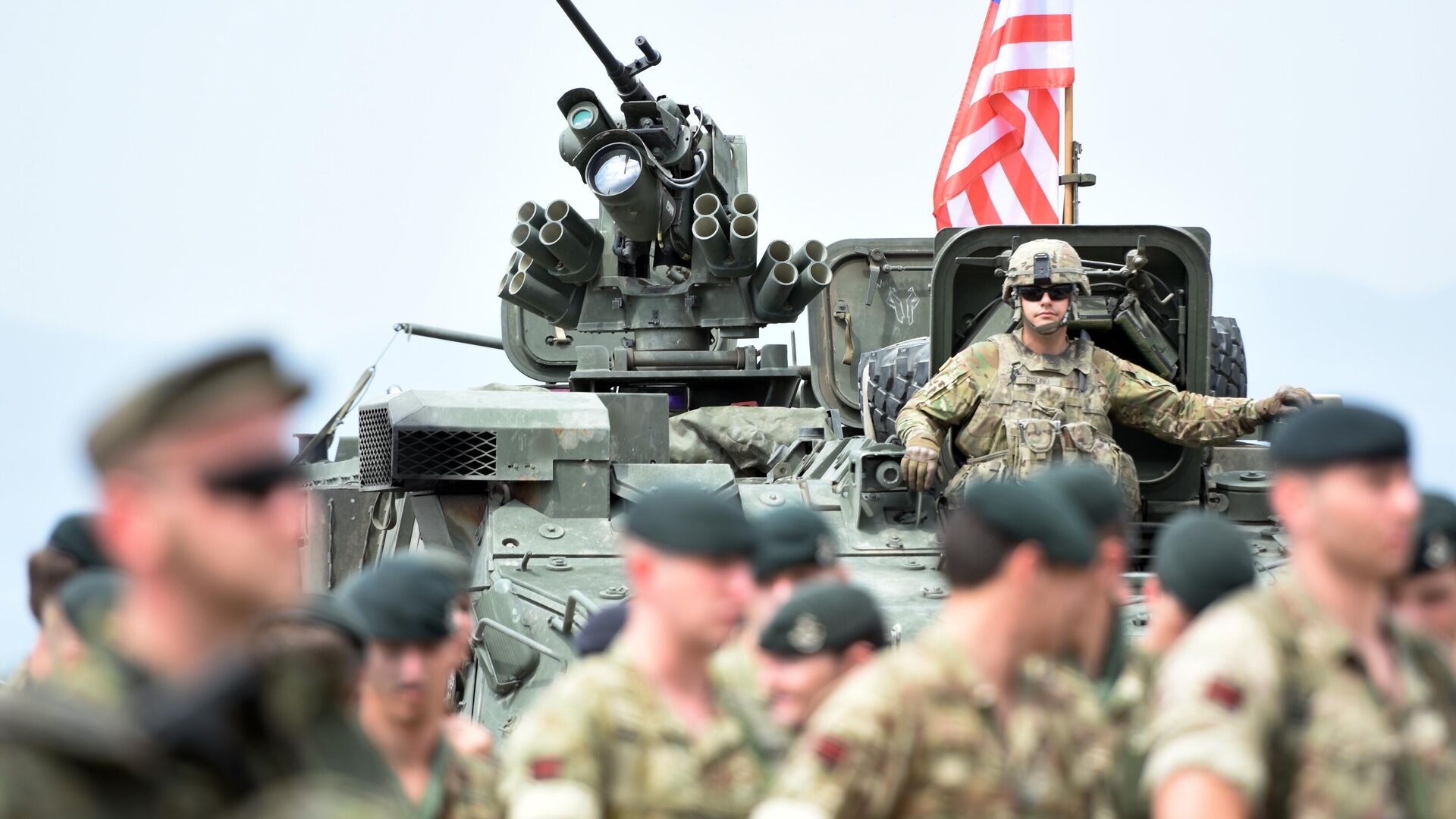https://sputnikglobe.com/20240122/natos-steadfast-defender-exercises-threaten-europes-security-1116319041.html
NATO's Steadfast Defender Exercises Threaten Europe's Security
NATO's Steadfast Defender Exercises Threaten Europe's Security
Sputnik International
Rather than try to de-escalate the already high tensions in Europe, the Western military bloc NATO proudly announced its intent to launch massive military exercises in the region involving around 90,000 troops.
2024-01-22T18:35+0000
2024-01-22T18:35+0000
2024-01-22T18:42+0000
analysis
nato
ukraine
military exercise
risks
russia-nato showdown
https://cdn1.img.sputnikglobe.com/img/07e8/01/16/1116320111_0:0:2992:1683_1920x0_80_0_0_298150e9ba40267e84252ceab7d88c68.jpg
Dubbed Steadfast Defender 2024, the exercises are going to be held as NATO becomes increasingly involved in the Ukrainian conflict, providing the regime in Kiev with weapons, mercenaries and intelligence to attack Russian territories and people.As Russian Deputy Foreign Minister Alexander Grushko has explained, these military exercises are “another element of the hybrid war unleashed by the West against Russia,” with any event of such magnitude increasing the risk of “military incidents” and further destabilizing security in the region.There appear to be several goals that NATO seeks to accomplish through Steadfast Defender 2024, explained Mikael Valtersson, a former Swedish Armed Forces officer, defense politician and chief of staff with the Sweden Democrats party.“Another purpose is to send a psychological message to assure the eastern NATO countries that NATO takes their security seriously,” he continued. “A third purpose is to tell Russia that NATO is ready and capable to act if they must.”According to Valtersson, a lot of people in the West actually believe in a “possible Russian attack towards European NATO countries in a couple of years,” with this fear being further reinforced by “alarmist statements from leading Western politicians and military leaders.”“This creates a Russophobic war mentality that easily might lead to escalation and the conflict they have predicted,” he remarked.Valtersson also pointed out that, while usually conducting military exercises poses no security risks as such events are a “normal part of military life,” holding large-scale drills “near the borders of countries you perceive as enemies” may result in dangerous mistakes being made.The emerging new Cold War “between the West and mainly China and Russia” and the West alienating many countries of the Global South by trying to force them to oppose Russia over the Ukrainian crisis may ultimately divide the world into two competing blocs, “the West and the rest,” Valtersson warned.“The difference with the first Cold War will be that the non-Western bloc will be incredibly stronger in size, economy, population and even diversity than during the first Cold War,” Valtersson added. “This conflict could be easily avoided if the West had accepted that they can't dominate the entire globe and that other major powers have their own spheres of interest.”
https://sputnikglobe.com/20240121/scale-of-steadfast-defender-drills-marks-return-of-nato-to-cold-war-era-patterns---moscow-1116291509.html
https://sputnikglobe.com/20240117/nato-official-sounds-alarm-warns-of-shifting-global-powers-1116236989.html
ukraine
Sputnik International
feedback@sputniknews.com
+74956456601
MIA „Rossiya Segodnya“
2024
Sputnik International
feedback@sputniknews.com
+74956456601
MIA „Rossiya Segodnya“
News
en_EN
Sputnik International
feedback@sputniknews.com
+74956456601
MIA „Rossiya Segodnya“
Sputnik International
feedback@sputniknews.com
+74956456601
MIA „Rossiya Segodnya“
nato drills, steadfast defender exercises , nato military exercises near russia, nato russia tensions, biggest nato drills since cold war, why does nato hold huge military drills
nato drills, steadfast defender exercises , nato military exercises near russia, nato russia tensions, biggest nato drills since cold war, why does nato hold huge military drills
NATO's Steadfast Defender Exercises Threaten Europe's Security
18:35 GMT 22.01.2024 (Updated: 18:42 GMT 22.01.2024) Rather than try to de-escalate the already high tensions in Europe, the Western military bloc NATO proudly announced its intent to launch massive military exercises in the region involving around 90,000 troops.
Dubbed Steadfast Defender 2024, the exercises are going to be held as NATO becomes increasingly involved in the Ukrainian conflict, providing the regime in Kiev with weapons, mercenaries and intelligence to attack Russian territories and people.
As Russian Deputy Foreign Minister Alexander Grushko
has explained, these military exercises are “another element of the hybrid war unleashed by the West against Russia,” with any event of such magnitude increasing the risk of “military incidents” and further destabilizing security in the region.

21 January 2024, 05:02 GMT
There appear to be several goals that NATO seeks to accomplish through Steadfast Defender 2024, explained Mikael Valtersson, a former Swedish Armed Forces officer, defense politician and chief of staff with the Sweden Democrats party.
One of these goals is training NATO soldiers to “fight Russian forces,” Valtersson said, noting that while the exercises' official narrative is about repelling an invasion, it seems more like preparation “for the eventuality of military missions into Ukraine, Belarus or Moldova.”
“Another purpose is to send a psychological message to assure the eastern
NATO countries that NATO takes their security seriously,” he continued. “A third purpose is to tell Russia that NATO is ready and capable to act if they must.”
According to Valtersson, a lot of people in the West actually believe in a “possible Russian attack towards European NATO countries in a couple of years,” with this fear being further reinforced by “alarmist statements from leading Western politicians and military leaders.”
“This creates a Russophobic war mentality that easily might lead to escalation and the conflict they have predicted,” he remarked.

17 January 2024, 21:42 GMT
Valtersson also pointed out that, while usually conducting military exercises poses no security risks as such events are a “normal part of military life,” holding large-scale drills “near the borders of countries you perceive as enemies” may result in dangerous mistakes being made.
“When both sides are high-strung and look for potential aggressive behavior from the other side, one mistake could quickly lead to escalation. If you really want to de-escalate tensions, you should avoid large-scale exercises near the borders of your adversaries,” he said. “These kind of exercises do nothing to dampen tension between Russia and NATO. It is, in fact, rather a part of an ongoing escalation process, which is bad for the security of Europe.”
The emerging new
Cold War “between the West and mainly China and Russia” and the West alienating many countries of the Global South by trying to force them to oppose Russia over the Ukrainian crisis may ultimately divide the world into two competing blocs, “the West and the rest,” Valtersson warned.
“The difference with the first Cold War will be that the non-Western bloc will be incredibly stronger in size, economy, population and even diversity than during the first Cold War,” Valtersson added. “This conflict could be easily avoided if the West had accepted that they can't dominate the entire globe and that other major powers have their own spheres of interest.”




